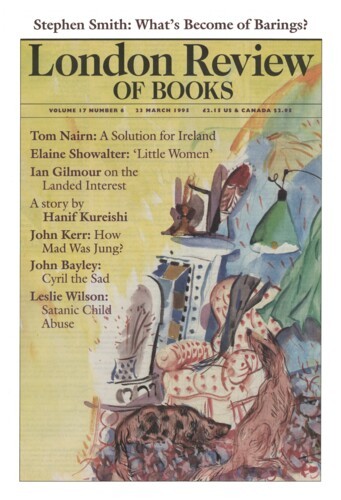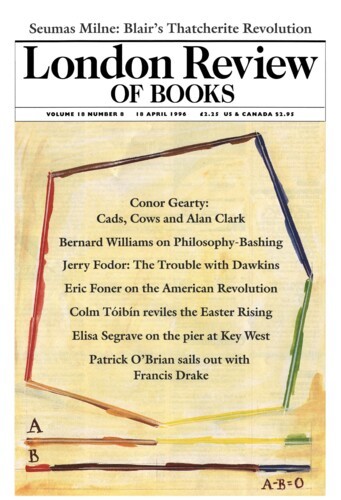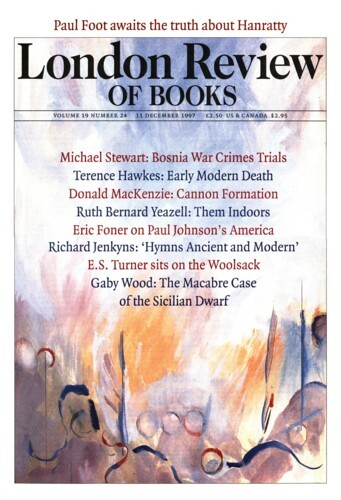More Pasts Than One
Eric Foner, 23 March 1995
Rarely has the study and teaching of history been the subject of such intense public debate as in the United States today. While America’s now-famous ‘culture wars’ originated in disputes over the teaching of literature – the demand that the canon should be expanded to include works by women and non-whites – history has recently taken centre stage. Assaults by structuralists, Post-Modernists and the like had already undermined many of the discipline’s methodological assumptions. American historians, however, like the public at large, are a resolutely non-theoretical lot. No one much cared when Jacques Derrida questioned the epistemological foundations of historical knowledge, or Hayden White insisted that historical narratives are, in large measure, carefully contrived myths. But when Indians spoiled the quincentenary of 1492 by condemning Christopher Columbus as a mass murderer, not only did the popular press cry ‘foul’, but historians had no alternative but to take notice.’





